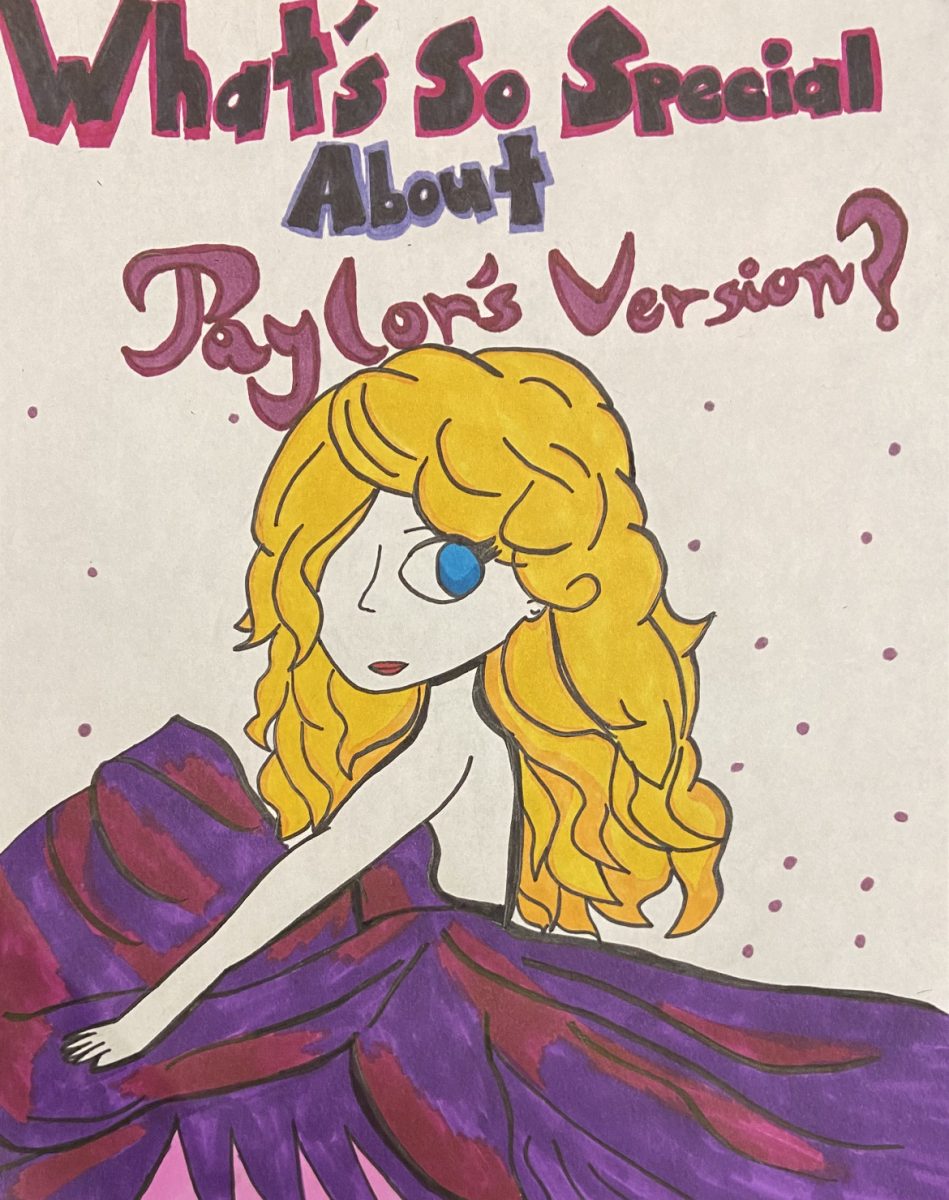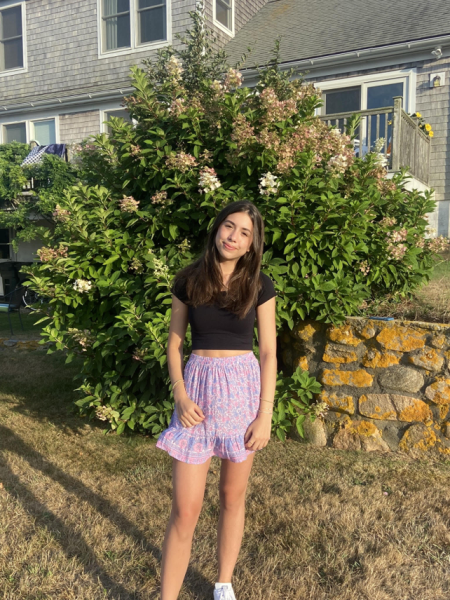In Taylor Swift’s fanbase, “T.V.” does not stand for television—instead, it stands for “Taylor’s Version,” meaning that she owns the song being played. These words—”Taylor’s Version’’—can now be found in parenthesis next to titles from four of Swift’s albums: Fearless, Red, Speak Now, and most recently, 1989. Thoughtful listeners should choose to listen to the “Taylor’s Version” of her songs instead of listening to the older versions. This is not simply to support Swift herself, but rather to support artists’ rights everywhere.
Swift’s fight to own her music has been a long and maddening one. Beginning her career at just 14 years old, Swift was taken advantage of by many figures in the music industry, one of which being Scott Borchetta. The two met in 2005 when he discovered Swift in Tennessee’s BlueBird Cafe and subsequently signed her to Big Machine Records, Borchetta’s new label. Under Big Machine Records, Swift’s career skyrocketed, earning her ten Grammys and a worldwide fanbase. Her contract with Big Machine Records expired in 2018, after which she switched labels to Republic Records.
Although Swift owned her lyrics and music, Big Machine Records still owned the master recordings of her first six albums: Taylor Swift, Fearless, Speak Now, Red, 1989, and Reputation. Owning master recordings of music means having total control over licensing; if anyone wanted to play a certain song in a show, movie, or ad, he or she would have to ask for the owner’s permission and pay in kind. This loss was especially devastating once Big Machine Records sold Swift’s masters to Scooter Braun, manager of famous artists such as Kanye West and Justin Bieber, for a price of $300,000,000. With this sale, Braun stood to profit off Swift’s songs and hard work, all because of a sale that she did not approve of. In the article “Taylor Swift Speaks Out About Sale of Her Masters” on the CNN Entertainment website (cnn.com), Swift reported her attempts to negotiate with Braun and regain her masters; yet, he and his team would not agree unless she signed a non-disclosure agreement (NDA) that forbade her from speaking about him in any way other than positive.
Refusing to be strong-armed into this deal, Swift decided to re-record her first six albums, confident that her loyal fans would support her and her fight for artists’ rights. Senior Mary Costello praised Swift: “Swift is taking back her own power. Her re-recordings show strength and how she was able to persevere despite the sale of her music.”
The “Taylor’s Version” album releases have been a hit. They are highly anticipated by her adoring fans as each one has its own “vault tracks,” referring to never-before-released tracks that were written at the time of the album. Sophomore Tal Moskowitz said, “My favorite re-recording is Speak Now (Taylor’s Version). I liked how it kept the same feel as the original Speak Now, while still adding small, new changes.” To demonstrate her firm stance on the subject, Swift explained in a Time magazine Instagram post from 2021 that “artists should own their own work for so many reasons, but the most screamingly obvious one is that the artist is the only one who really knows that body of work.”
When listening to a “Taylor’s Version” song, whether it be the fan-favorite “All Too Well” from Red (Taylor’s Version) or the classic “Shake It Off” from 1989 (Taylor’s Version), it directly supports the artist and creator of a song, rather than an uninvolved entrepreneur like Braun. “Swift is taking control of her own career–it’s amazing,” said senior Peyton Keller.
The next time you are listening to Swift, know that picking “Taylor’s Version” supports the artist’s rights, provides a chance to hear subtle musical twists on old songs, and includes new bonus “vault tracks” to enjoy.


















